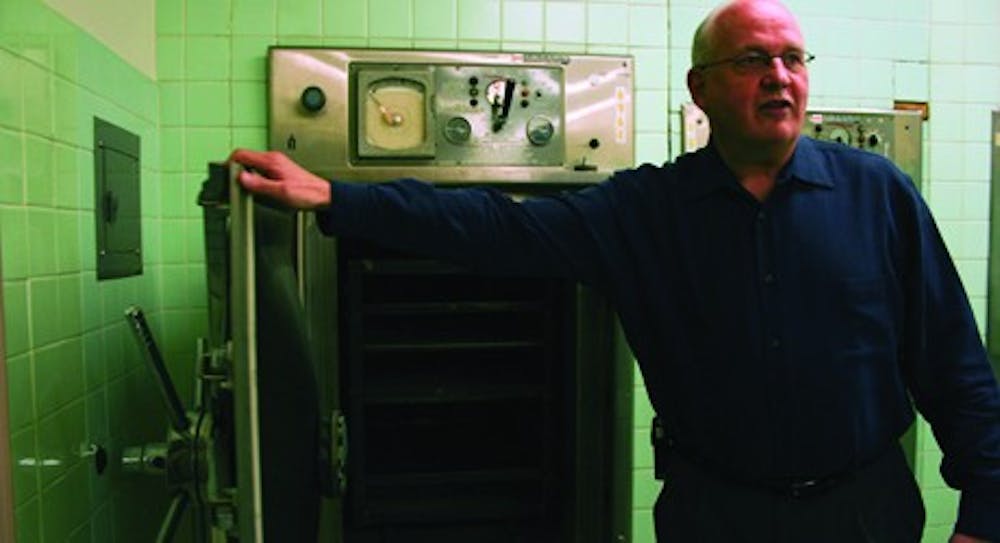Sherman Alexie Jr.’s self-deprecating and profane poetry helped pack the 600-seat Tempe Center for the Arts Monday for the first night of ASU’s Project Humanities.
Alexie’s poems kept everyone simultaneously laughing and wide-mouthed, as the author, poet and screenwriter left no areas sacred in his American Indian-focused poetry.
“If it’s fiction it better be true,” Alexie said. And then added, “There’s a grad student out there masturbating to that.”
That was one of the milder things Alexie said during his hour and a half on stage.
ASU’s Project Humanities is a University-wide initiative that focuses on the human community. Various events and activities will take place on all four campuses over the course of the year.
Neal Lester, dean of Humanities at the College of Liberal Arts and Sciences, steered this week’s efforts to bring Project Humanities to ASU.
“You don’t have to be consistent when you’re telling the truth,” Lester said. “You are.”
Alexie seemed to be reaching for a bigger truth about the American Indian, telling the audience in between poems that most people don’t know anything about the American Indian and so Alexie could say whatever he wanted — replace the words anything and whatever with a profane phrase of your liking.
Alexie’s message did in part get to what Lester had hoped for Project Humanities: For people to move beyond those things that are familiar.
With tighter budgets reducing humanities programs it’s important to take a look at humanities and the impact they have on the quality of our life, Lester said.
“There has to be something greater, and I think the greater is the potential ties that we make with other people when we step outside of ourselves and we imagine the world through someone else’s eyes,” Lester said.
Lester added that humanities are about expanding our consciousness beyond the “binary” thinking of good and bad, right and wrong.
Humanities is about a process, a process of talking and listening, a process of moving beyond what is familiar and realizing that the quality of our lives is directly related to the extent that we understand each other’s differences and similarities, Lester said.
Lester added that this process involves self-reflection, where we ask ourselves the question: What is it in my thinking that makes me care or not care?
ASU’s College of Nursing and Health Innovation has been incorporating an appreciation for the humanities since its beginning in 1957, said Dave Hrabe, associate dean at the nursing school.
The idea of therapeutic communication and aesthetics dates back to Florence Nightingale, the mother of modern day nursing practices, Hrabe said. She was big on having light, air and a clean space for patients, Hrabe added.
The college has incorporated humanities in its curriculum referring to it as a way of knowing what it means to be a nurse and interact with patients.
It involves a project like a poem or work of art that makes the nursing student think through his philosophy and what nursing means to him.
“There is something about a place that is more than the physical space,” Hrabe said.
Reach the reporter at cbleone@asu.edu





